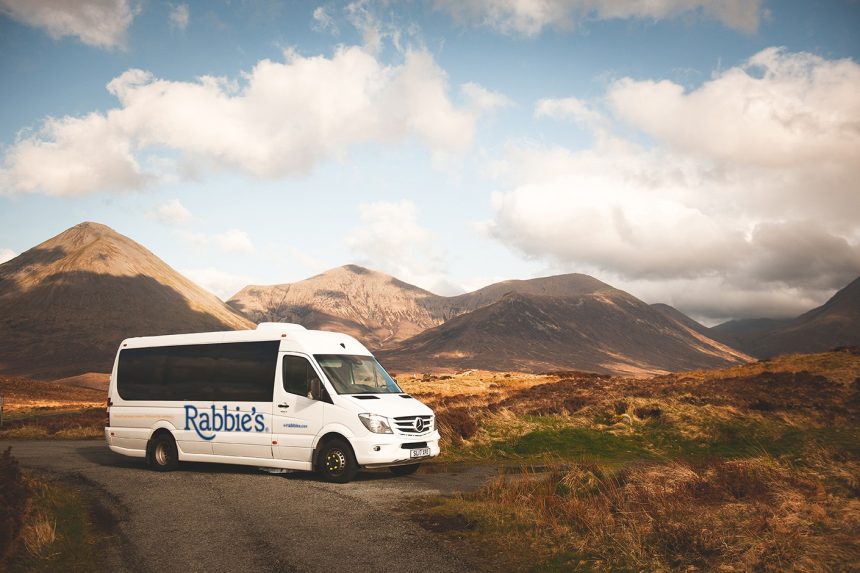Edinburgh-based small group tour operator Rabbie’s has achieved B Corp certification. That recognises its high standards in social and environmental performance, transparency, and accountability.
Such an achievement puts Rabbie’s as part of a global community of organisations that are committed to high standards of responsibility across those areas. To gain B Corp status, a business must complete an assessment and have its results verified by B Lab.
That audit evaluates the organisation’s performance across various categories including governance, workers, community, environment, and customers. B Lab aims to measure a company’s overall social and environmental impact.
The assessment typically takes at least 12 months. B Corps are required to repeat the process every three years. They must score at least 80 points in the assessment for accreditation.
To help mitigate its fuel use, Rabbie’s has a longstanding self-imposed carbon tax of £10 per tonne consumed across its operations. The proceeds are reinvested through donations to projects such as forest regeneration, path building, and community groups.
Projects that have benefitted from include Portree and Braes Community Trust and Staffin Community Trust – Urras an Taobh Sear. Rabbie’s adds that use of minicoaches allows it to spread the tourism spend it leverages to smaller businesses that are more difficult to reach. It recently completed delivery of 26 such new examples from EVM.
Speaking about the B Corp accreditation, Rabbie’s CEO Hazel Rickett says: “At Rabbie’s, we have always thrived by working closely with local suppliers and small businesses in the communities we visit on our small group tours.
“Supporting these communities is at the heart of everything we do, and we are committed to giving back however we can. Becoming a certified B Corporation has been an incredibly proud moment for our team, as it connects us with a global movement driving positive policy and economic change.
“For us, this means investing in local partnerships, minimising our environmental impact, and safeguarding the places we all love to explore.”



























